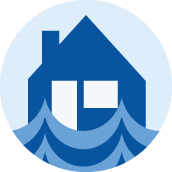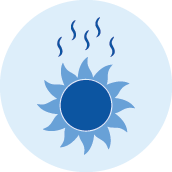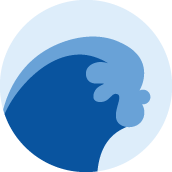What you can do to be ready for a flood
What you will find on here
What is a flood?
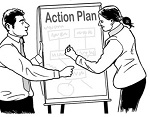
The information on this page is about what to do if a flood happens.

A flood is when a large amount of water rises to a dangerous level.

Floods can be caused by things like:
- a big storm also known as a hurricane
- places where water is collected breaking such as a dam
- heavy rain / lots of rain.
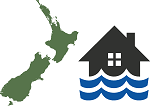
Floods happen often in New Zealand.

How long a flood takes to happen can be:
- a short time such as a few minutes / hours
- a longer time such as a few hours / days.

If a flood happens it can:
- cause a lot of damage
- put people in a lot of danger.
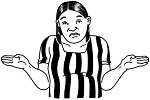
It is not possible to know when a flood might happen.

There are things we can do to:
- be ready if a flood happens
- protect ourselves
- protect our family / whānau.
Things you can do to be ready for a flood

The best way to get ready for if a flood happens is to make a plan.

Having a plan will make it easier for you to know what to do if a flood happens.
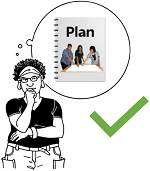
It is important to practise what you will do in a flood so you can act quickly to keep yourself safe if it happens.
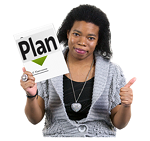
Practise is when you do something many times so that you can get good at doing it.
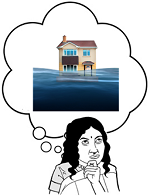
It is a good idea to find out what the flood risk is like where you live.

The flood risk will tell you how likely it is a flood will happen.

You can find out what the flood risk is for where you live by asking your local council for information.

Houses that tend to be more at risk from floods are usually built:
- in areas that are very low down
- near a large amount of water such as:
- rivers
- lakes
- the sea.
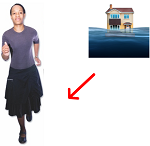
If your house is in an area that is at risk from floods your local council should tell you about how to evacuate if you need to.
Evacuate means to get to a safe place away from danger.

Your local council should tell you about:
- how they will let people know about a dangerous flood
- how they will evacuate people if a flood happens
- what you should do with any animals you own if a flood happens.

Your local council should also be able to support you to make sure your home is at less risk from any floods that might happen in the future.

It is a good idea to think about what supplies you might need.

Supplies can be things like:
- a stock of bottled water for everyone in your house
- a cupboard stocked with food
- a torch with extra batteries
- a first aid kit.
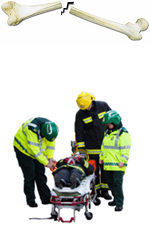
First aid is when you give medical help to someone who is injured so you can:
- save the life of that person
- prevent their injury from getting worse.
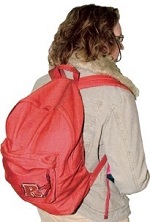
It is also a good idea to put together a grab bag that you can take with you in an emergency.

A grab bag is a small backpack of essential items that you can take with you if you need to get away from danger very quickly.

If you have house insurance you should make sure it is up to date.

Having insurance is when you pay money to an insurance company so that they will assist you if something goes wrong.
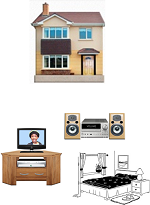
You should make sure you have insurance for:
- your home
- the things you have inside your home known as contents.

You should make sure your insurance says that you can claim for any damage a flood does to your home.
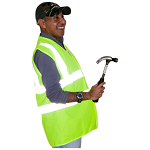
Having insurance will help you get things fixed quicker if your house is damaged by a flood.
What to do if you think a flood is going to happen

If you think a flood is going to happen there are some things you should do.

It is important to keep up with any information.
Places you might find information include:
- your local radio station
- groups on the internet such as your local Civil Defence Emergency Management Group.

You should make sure you follow any instructions given to you by emergency services

You should have your grab bag ready in case you need to evacuate.

You should follow any orders that tell you to evacuate to stay safe.

You should evacuate straight away if you do not feel safe even if you have not been told to.

You should move any animals to a safe place so they will be away from any flood water.

If you have to leave your home you should take your pets with you.

You should move some things in your house to as high a floor as you can to keep them out of the water.

The sorts of things you should move include:
- things that are worth a lot of money such as jewellery
- electrical items such as TV sets
- any chemicals you might have such as things you might use to clean.

You should put any important items in containers that can be tightly closed to stop water getting in.
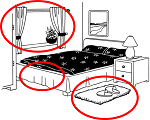
You should lift any items made of fabric off the floor such as:
- curtains
- bed covers
- rugs.

You may also be told to turn off utilities when a flood happens.
Utilities are things like:
- the water that comes out of your taps
- your electricity supply
- your gas supply.
What to do during a flood
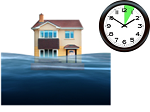
Floods can happen very quickly without warning.

It is important to act straight away if you see any rising water.
If you see any rising water you should not wait for official warnings.
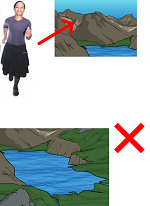
You should:
- get to high ground straight away
- stay away from any water.

Water from a flood can be very dangerous.
You must never try to move through water caused by a flood.
This means you must not:
- try to walk through flood water
- try to swim in flood water
- try to drive through flood water.

Flood water is often contaminated water.
Contaminated means:
- something has made it dirty
- it can make you very sick.

Flood water is often contaminated by things like:
- water that has run off from farm land
- chemicals that have been used on farm land
- sewage which is waste water / poo that has come from toilets.
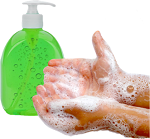
You should always make sure you wash yourself very well after you have touched flood water.

If you do touch any flood water you should make sure you:
- wash your hands
- wash your clothes
- wash any other things the flood water has touched.
What to do after a flood

You should not go back to your home after a flood until you have been told it is safe.
It might not be safe to go back to your home even when any flood water has gone.

You should stay away from any areas that have been damaged by the flood.

This is to make sure you:
- keep yourself safe
- do not get in the way of the emergency services.

You should move around very carefully after a flood as the ground may be very slippery.

There may also be a lot of things on the ground that have been damaged by the flood that could hurt you.
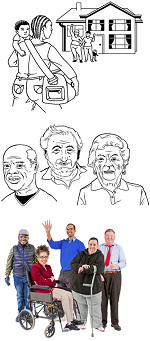
If it is safe to do so you should check on people nearby who might need your help such as:
- your neighbours
- older / disabled whānau
- anyone else who might need your support.
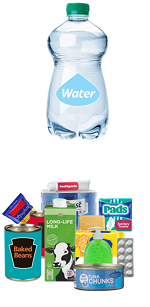
You should throw away any food items that have been touched by flood water including:
- drinking water
- canned goods.

You should not use any water from your taps until you are sure it is not contaminated.
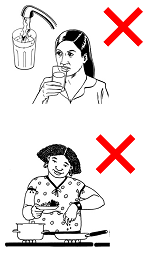
This means you should not:
- drink any tap water
- wash food with tap water
- cook food with tap water.
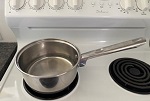
Your local council may tell you to boil any water you use until they tell you otherwise.

You can find out more information about food safety in an emergency at the Ministry for Primary Industries website.

This information is not in Easy read.
What to do if your property is damaged after a flood

It is possible that a flood could damage your property.

Your property could be things like:
- the outside of your house
- things inside your house
- your car
- things in your garden such as sheds.

If your property is damaged you should not do anything that could:
- be dangerous to you
- cause more damage
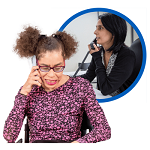
If you have insurance you should tell the insurance company about the damage the flood has done as soon as possible.
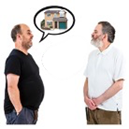
If you rent your home you should tell your landlord about any damage.

You should take photos of any damage caused by a flood.
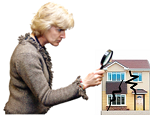
Having photos will mean the insurance company can look at your claim much faster.
Cleaning up after a flood

After a flood it is very important to:
- clean your house really well
- clean everything inside your house really well
- make sure everything is dried out properly.

This is because water from a flood can make the air in your home unhealthy to live in.
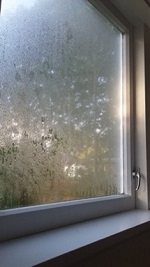
When things get wet for more than 2 days they usually get mouldy.

There may also be germs / bugs in your home after a flood.

Mould can make some people very sick such as people who have:
- asthma
- allergies
- other breathing problems.

If you are worried you should talk to your doctor if you have any questions about:
- cleaning a home that has been flooded
- working in a place that has been flooded.

Before you begin cleaning up any mould you should make sure you protect yourself by wearing:
- a special face mask called a respirator mask
- goggles to cover your eyes
- gloves to cover your hands
- clothing that covers your arms and legs
- sturdy footwear to protect your feet.
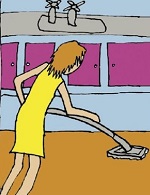
If there is a lot of mould in your house you may want to pay a cleaning company to help you clean it up.

After a flood you should throw away anything that got wet that cannot be safely cleaned.

This includes things like:
- wooden spoons
- things you use to cook with that are made of plastic
- the teats on baby bottles
- dummies that a baby might suck.

You can clean some things in clean boiling water such as:
- metal pans
- things you use to cook with that are made of metal.
What to do in an emergency
There are a lot of hazards in New Zealand. A hazard is something that can cause danger or put people at risk.

